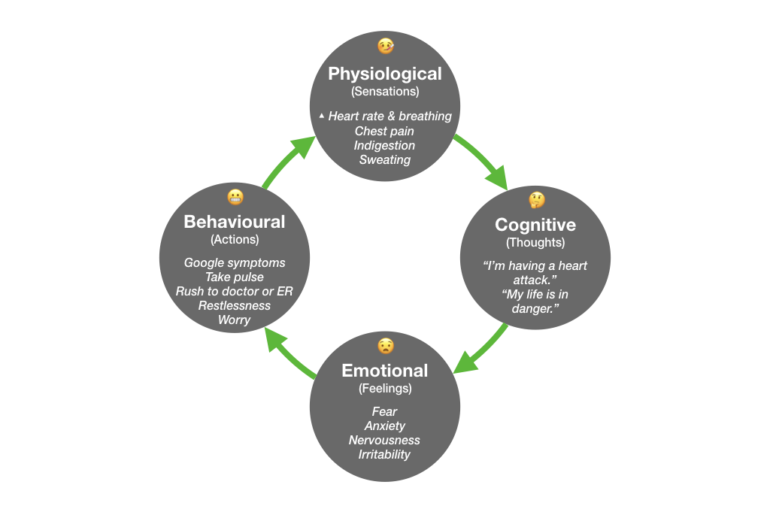
For many people ‘coming out of lockdown’ and the ability to ditch the mask is causing a rise in anxiety. We are seeing an increase in health anxiety issues and for some this is resulting in a reduction in going out again and restricting where feels safe similar to the first lockdown.
Firstly, it’s perfectly natural to feel anxiety at the current time. We are all feeling it to a lesser or greater extent and if we have other difficulties in our life then what’s going on around us is layered on top of what we were already struggling with. Basically if our pre-existing tolerance level was already negatively impacted by other issues, whatever Covid-19 brings has topped that up further. Our fears may be related to family and loved ones, imagining worst case scenarios that may occur and how we would respond to them. This is using up valuable energy at a time when we may already have stress related fatigue.
Health anxiety can be displayed in lots of different ways. It may be that we have been checking our body more and seeing any symptom as potentially dangerous. This may be nothing to do with Covid-19 related symptoms. We may have a migraine and start wondering could it be a sign of something serious in our brain. If our level of anxiety was at a normal level for us that thought may just pass with a ‘don’t be silly it’s just a migraine’. When our anxiety level is heightened this can cause us to over-think on this remote possibility. Of course as we are being driven by fear, the rational/reasoning part of our brain isn’t functioning well so this can’t break through the feelings of fear. So we might start to search for information on the internet to help alleviate our anxiety or seek reassurance from others. It can be difficult to speak to a GP at the moment so that may be causing anxiety as well that we have to wait longer than normal to access medical help. The fear of going into hospital due to Covid-19 can cause more anxiety with the ‘what if I have to go into hospital for a test’; ‘what if it gets worse and I have to go to A &E’? Sadly all of these negative thoughts increase the anxiety symptoms in the body which can increase the bodily symptoms we are feeling. Fear increases our experience of pain and discomfort so we start to feel worse, reinforcing the fear that the symptoms are potentially dangerous.
Simple techniques that can help us
- Try to be as mindful as you can which basically means focusing on the here and now rather than allowing your worry brain to catastrophise the worst possible outcome. By noticing that our worry brain has activated as soon as possible and label the catastrophising thought as just that we can stop our body’s fear response from spiralling out of control. It can be hard to hold onto rational thoughts when our fear brain is activated so noticing when this thought process starts is the key to stopping the cycle.
- Use your breathe to activate your body’s calming system. Below is a simple breathing technique to help us stay present so we can have focus, clarity and calm within your state of being.
Descending (4-4-6):
- Inhale to a count of 4 through the nose
- Hold the breath for a count of 4
- Exhale for a count of 6 through the mouth
- Repeat 6-8 times and rest with normal breathing
Remember to just accept what your feel and not to force anything during this process. As a practice you may try doing 3 sets of 6-8 descending breaths, resting in between. Notice the effects of this breath on your body, your lungs, your state of mind. Just notice, don’t try to create any particular state of mind.
- Commit to ‘checking in’ with yourself for 5 minutes at least twice per day as part of your normal self-care routine. Ask yourself:
- What is going on for me right now? How am I feeling right now?
- What is my body telling me right now? You may find it helpful to connect by consciously scanning your body from head to toe – briefly connecting with each part and noticing any tension or feelings in your head, shoulders, neck, arms, chest, stomach, legs and feet
- What do I need to help me be the best I can for the rest of today?
If you are anticipating a difficult event in the day, do this check in beforehand and utilise the breathing technique to reduce your general stress level before going into something challenging.
We offer counselling and guidance to adults and children from age 5 on a wide range of emotional and psychological issues. Please contact us to discuss how we can help you.
Rachel Wesley
